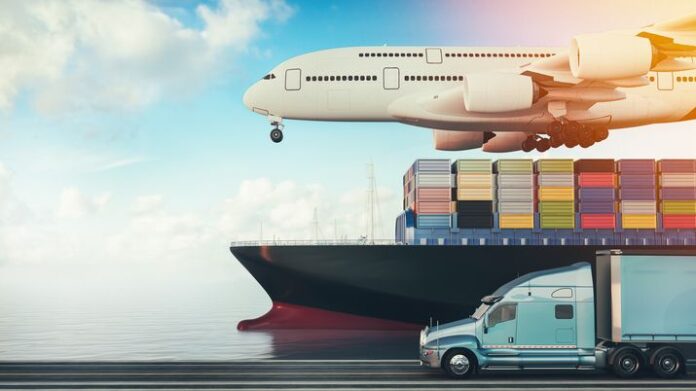Top 10 Best Supply Chain & Logistics Companies in India 2023
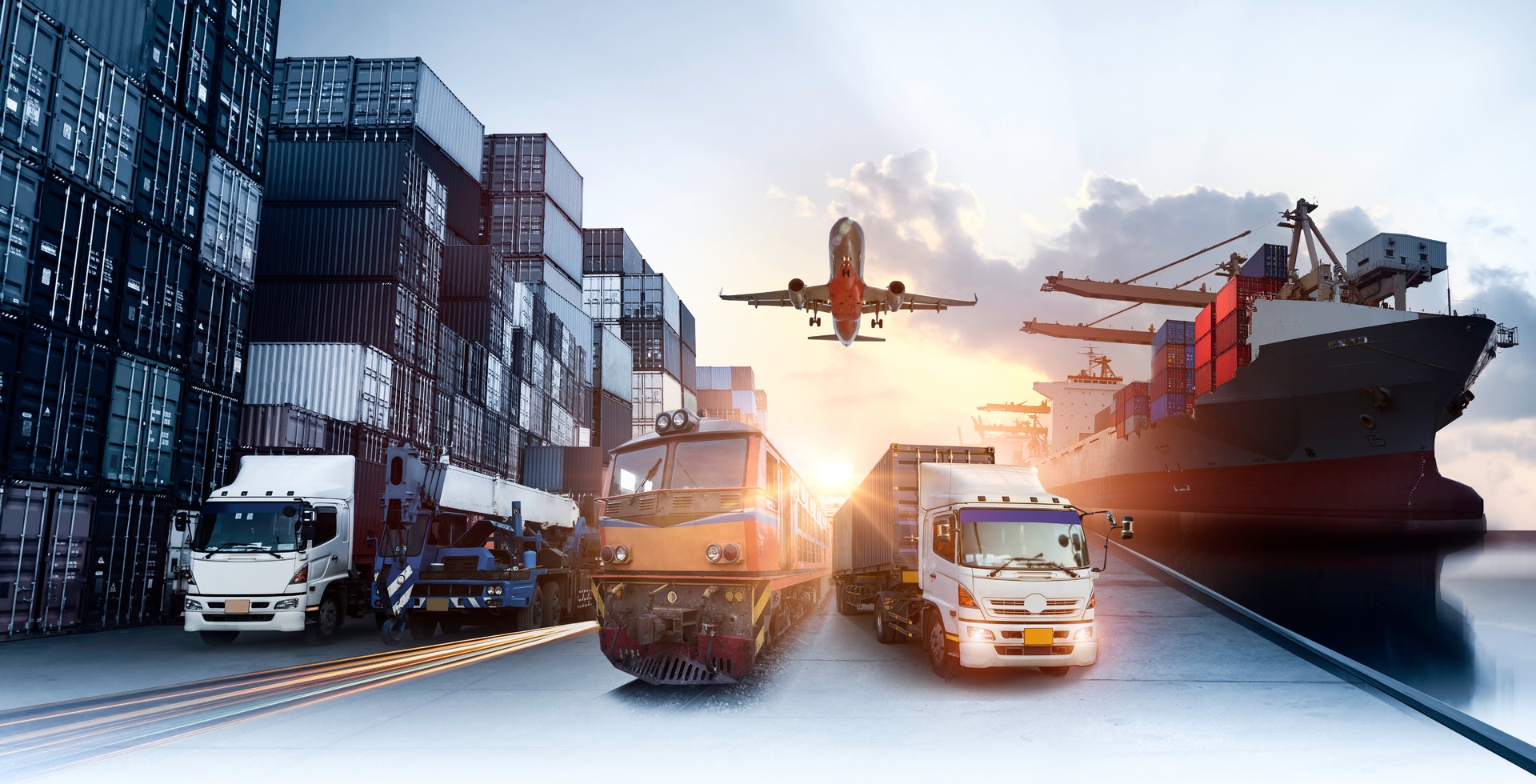
Supply Chain and Logistics companies manage and oversee the process of getting goods from the original producer to the final consumer. This process involves multiple stages and numerous entities, including manufacturers, distributors, transporters, warehouses, and retailers. The companies in this sector are responsible for coordinating all these elements to ensure that goods are delivered on time, at the right place, and in the desired condition.
Here are a few types of Supply Chain & Logistics Companies:
Manufacturing Companies: These are the entities that produce goods. They often work closely with supply chain and logistics companies to ensure the efficient delivery of raw materials for production and the distribution of finished goods.
Transportation Companies: These companies are responsible for physically moving goods from one location to another. This can involve different modes of transportation, including trucks, ships, airplanes, or trains. Some examples of transportation companies are UPS, FedEx, and Maersk.
Third-Party Logistics Providers (3PLs): These companies provide multiple logistics services to their clients. Services can include transportation, warehousing, pick-and-pack, inventory forecasting, order fulfillment, packaging, and freight forwarding. Examples of 3PLs include DHL, XPO Logistics, and C.H. Robinson.
Warehousing and Distribution Companies: These companies store goods and manage their distribution to retailers or directly to consumers. They may offer value-added services like order fulfillment, packaging, and labeling.
Freight Forwarders: These companies organize shipments for individuals or corporations to get goods from the manufacturer or producer to a market, customer, or final point of distribution.
Supply Chain Management Software Providers: These companies provide software solutions to help manage and coordinate supply chain activities. Their software can help with forecasting demand, sourcing materials, production planning, and logistics. Examples include SAP, Oracle, and Infor.
E-commerce Fulfillment Companies: These companies handle storage, packing, and shipping of products for e-commerce businesses. They play a crucial role in the modern digital economy. Examples include Amazon (Fulfillment by Amazon) and Shopify (Shopify Fulfillment Network).
Consulting Firms: These companies advise businesses on how to optimize their supply chains. This could involve improving procurement processes, reducing transportation costs, or re-engineering distribution networks. Examples include McKinsey & Company, Bain & Company, and Accenture.
Each type of company plays a unique role in ensuring the smooth operation of the global supply chain.
Why Supply Chain & Logistics Companies are important
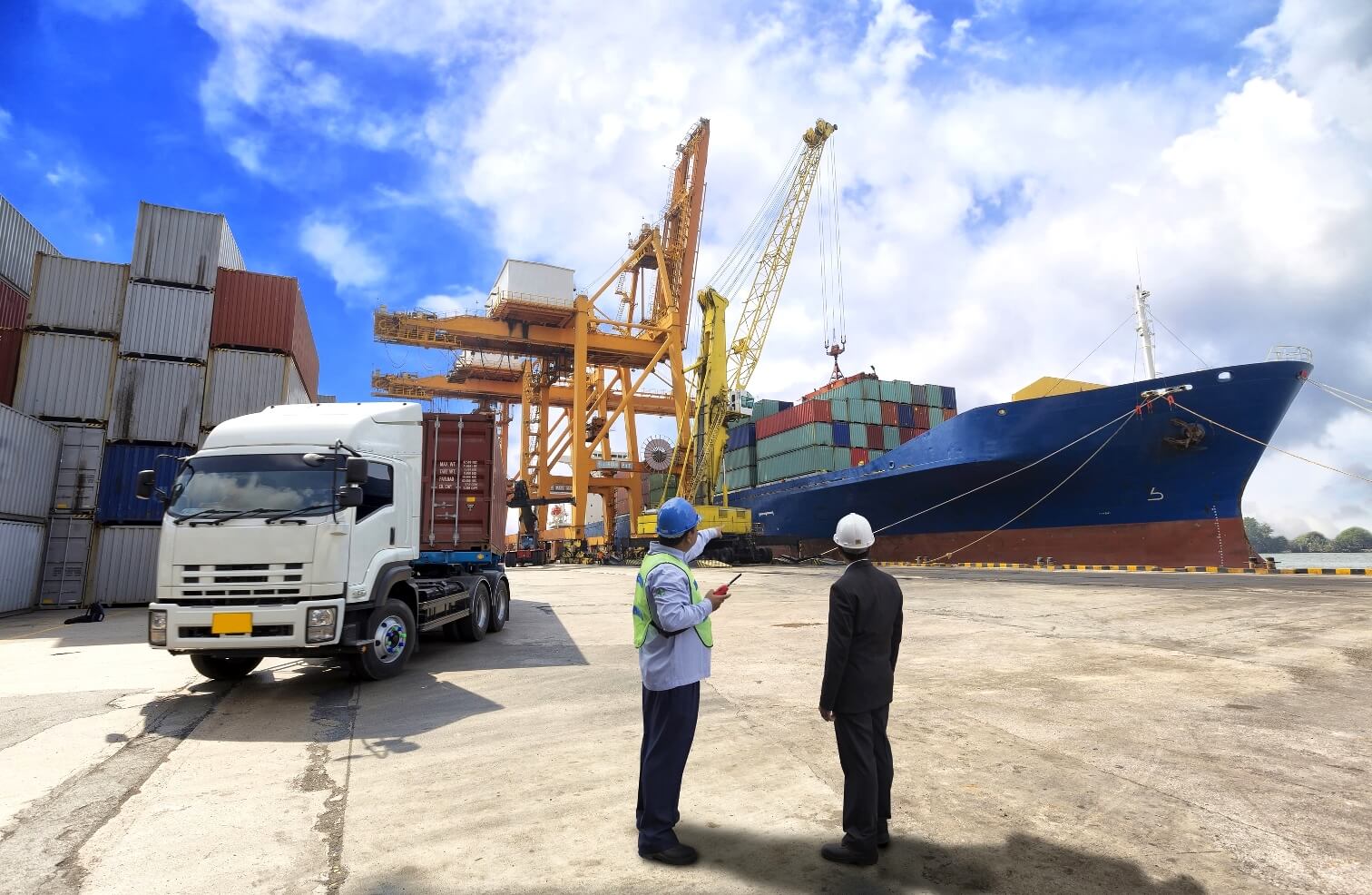
Supply Chain & Logistics companies play a vital role in the global economy for several reasons:
Efficient Distribution of Goods: These companies ensure that goods are transported from the point of production to the point of consumption efficiently and effectively. This is crucial for both businesses and consumers. For instance, without efficient logistics, a retailer might not receive their stock on time, leading to empty shelves and lost sales.
Cost Management: Effective supply chain and logistics management helps businesses control costs. By optimizing transportation routes, managing warehouse space efficiently, and minimizing waste, companies can save significant resources and increase profitability.
Customer Satisfaction: Supply chain and logistics companies ensure that consumers receive their products on time and in good condition. This enhances customer satisfaction and loyalty, which are critical for business success.
Global Trade: These companies facilitate global trade by managing the movement of goods across borders. This involves dealing with customs, international shipping regulations, and different transportation modes.
Risk Management: Supply chain and logistics companies also play a critical role in managing risks related to the supply of goods. This could involve mitigating the impact of supply chain disruptions, managing inventory levels to prevent stockouts or overstocking, and ensuring compliance with regulatory requirements.
Sustainability: With increasing focus on sustainability, these companies also play a role in implementing environmentally friendly practices within the supply chain. This could involve reducing waste, minimizing energy consumption, or opting for sustainable transportation modes.
Economic Development: These companies contribute to economic development by creating jobs, facilitating trade, and supporting businesses in various industries. They help to ensure that goods, services, and trade can move freely and efficiently, which is a key aspect of economic growth.
In essence, without supply chain and logistics companies, the global flow of goods would be significantly hindered, impacting businesses, consumers, and economies at large.
History of Supply Chain & Logistics Companies in India
India has a long and rich history of trade, and supply chain & logistics have been integral to the nation’s economy for centuries. However, the modern concept of supply chain and logistics management, as we understand it today, began to take shape in India in the latter half of the 20th century. Here’s a brief overview of the evolution of supply chain and logistics companies in India:
Pre-1990s: Prior to the economic liberalization in 1991, India followed protectionist policies, with high tariffs and strict regulations governing foreign trade. The logistics sector was primarily state-controlled and was seen more as a support function rather than a driver of efficiency. There were a few state-owned companies involved in rail, road, and maritime transportation, but the sector was not highly developed.
Post-1991 Economic Liberalization: The economic liberalization of 1991 marked a turning point for many sectors in India, including supply chain and logistics. The government reduced tariffs, eased import and export controls, and encouraged foreign investment. These reforms opened up new opportunities for private companies in the logistics sector.
Late 1990s-2000s: During this period, the growth of manufacturing and retail sectors led to a surge in demand for organized logistics services. Many domestic and international logistics companies started operations in India. Third-Party Logistics (3PL) services started gaining popularity, and companies started recognizing the importance of supply chain management.
E-commerce Boom: The rise of e-commerce companies like Flipkart and Amazon in the late 2000s and 2010s further boosted the logistics sector. These companies built large-scale logistics networks to support their operations. The e-commerce boom also led to the growth of many new logistics startups offering innovative solutions, like express delivery, cash-on-delivery, and reverse logistics.
Policy Initiatives: The Indian government has also taken several steps to improve the logistics sector. For instance, the introduction of the Goods and Services Tax (GST) in 2017 helped to simplify the tax structure and reduce logistics costs. The government also launched the Logistics Ease Across Different States (LEADS) index in 2018 to assess the efficiency of logistics in different states and identify areas for improvement.
Digitalization and Technological Advancements: With the advent of digitalization, many companies started leveraging technology to optimize their supply chains. The use of technologies like GPS tracking, warehouse management software, and data analytics has significantly improved the efficiency of logistics operations.
Today, India’s supply chain and logistics sector is a rapidly growing industry, serving a diverse range of sectors like retail, e-commerce, manufacturing, and FMCG, among others. Despite the progress, challenges such as infrastructure bottlenecks, regulatory hurdles, and skills gaps remain. Nevertheless, the future of the sector looks promising, with increasing digitalization, government support, and growing demand for logistics services.
Benefits of Supply Chain & Logistics Companies

Supply chain and logistics companies provide a range of benefits to businesses, consumers, and the economy as a whole. Here are a few key benefits:
Efficiency: Logistics companies help to improve efficiency by ensuring the smooth transportation of goods from producers to consumers. They optimize routes, manage inventories, streamline warehouse operations, and leverage technology to reduce costs and improve speed.
Cost Savings: By optimizing operations, these companies can help businesses save costs. This can involve everything from reducing transportation costs, and minimizing storage costs to preventing wastage due to overstocking or understocking.
Focus on Core Business: By outsourcing logistics operations to specialized companies, businesses can focus on their core competencies. This can help them improve their products or services and grow their business.
Customer Satisfaction: Supply chain and logistics companies ensure that goods are delivered to customers on time and in good condition. This can improve customer satisfaction and help businesses retain their customers.
Scalability: As businesses grow, their logistics needs also increase. Supply chain and logistics companies can help businesses scale their operations by providing flexible and scalable solutions.
Risk Management: These companies can also help businesses manage risks associated with the supply chain. They can provide solutions to deal with disruptions, ensure compliance with regulations, and manage inventory levels to prevent stockouts or overstocking.
Sustainability: Many logistics companies are now offering solutions to help businesses reduce their environmental impact. This can involve reducing energy consumption, minimizing waste, or using sustainable modes of transport.
Access to Technology and Expertise: Supply chain and logistics companies often have access to the latest technologies and expertise in the field. This can provide businesses with insights to improve their operations and stay competitive.
Global Reach: These companies often have extensive networks that can help businesses reach customers in different parts of the world. This can help businesses expand their market and grow their customer base.
In summary, supply chain and logistics companies play a vital role in the global economy, helping businesses operate efficiently, save costs, manage risks, and satisfy their customers.
Best Supply Chain & Logistics Companies in India
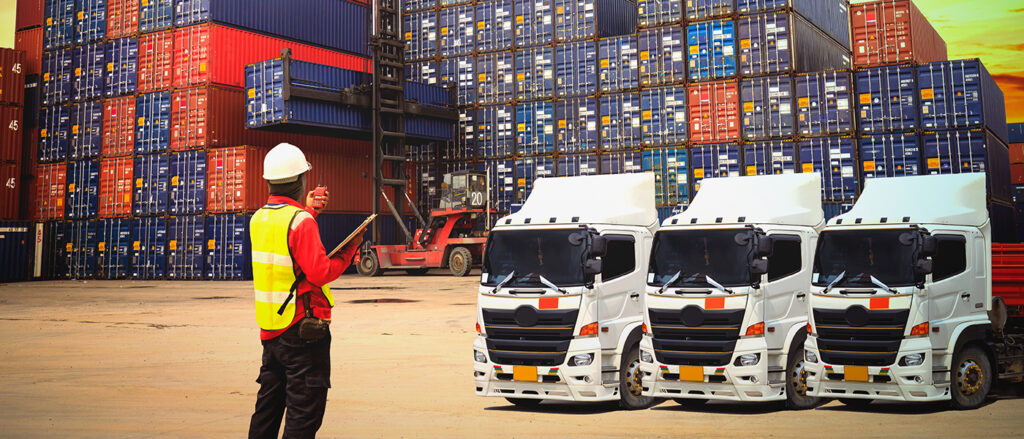
Blue Dart Express Limited
Transport Corporation of India (TCI)
DHL Express (India) Pvt Ltd
FedEx India
Safexpress Pvt Ltd
Gati Ltd
Allcargo Logistics Ltd
Agarwal Packers and Movers Ltd
Future Supply Chain Solutions Ltd
Mahindra Logistics Ltd
Blue Dart Express Limited

Blue Dart Express Ltd is one of the leading courier and integrated express package distribution companies in South Asia. The company was established in 1983 and is headquartered in Mumbai, India. It is part of the Deutsche Post DHL Group, which is a global leader in logistics.
Here’s a brief overview of Blue Dart’s supply chain and logistics operations:
Services: Blue Dart offers a wide range of services, including domestic and international shipping, air freight, smart box delivery, temperature-controlled logistics (for transporting items that require a specific temperature range), and door-to-door delivery. They also offer a service called ‘Cash on Delivery’ for e-commerce companies, where they collect payment from the customer at the time of delivery.
Network: Blue Dart has an extensive network that covers more than 35,000 locations in India and serves more than 220 countries worldwide through the DHL Group. This extensive network allows them to reach a large number of customers and deliver packages quickly and efficiently.
Infrastructure: Blue Dart has a strong infrastructure, including warehouses, ground hubs, and a dedicated air network. They own a fleet of cargo aircraft and have multiple ground hubs across the country. This infrastructure allows them to manage the flow of packages effectively and ensure timely delivery.
Technology: Blue Dart has leveraged technology to improve its operations. They have an advanced tracking system that allows customers to track their packages in real-time. They also use technology to optimize routes, manage inventories, and streamline their operations.
Sustainability: Blue Dart has initiatives in place to reduce its environmental impact. They have been working towards improving their energy efficiency, reducing emissions, and managing waste effectively.
Blue Dart’s supply chain and logistics operations play a crucial role in their ability to deliver packages quickly, efficiently, and reliably. Their services support a wide range of industries, including e-commerce, pharmaceuticals, consumer electronics, and more.
Transport Corporation of India (TCI)

Transport Corporation of India (TCI) is a leading integrated supply chain and logistics solutions provider in India. Established in 1958 and based in Gurgaon, Haryana, TCI has grown into a multinational conglomerate with a network spanning several countries.
Here’s an overview of TCI’s supply chain and logistics operations:
Services: TCI provides a broad spectrum of services that include multimodal transportation (road, rail, air, and sea), supply chain solutions, warehousing, and distribution. It also offers freight forwarding, customs brokerage, and other related services.
Divisions: TCI operates through various divisions, such as TCI Freight, TCI Supply Chain Solutions, TCI Seaways, TCI Express, and TCI Global, each specializing in different areas of logistics and supply chain management.
Network: TCI’s wide network covers over 14000 locations across India and serves customers in more than 200 countries across the globe. It boasts a strong infrastructure with over 12 million square feet of warehousing space.
Infrastructure: TCI has a strong fleet of more than 7000 trucks and a large number of custom containers and specialized equipment. The company also operates cargo ships through its TCI Seaways division.
Technology: TCI has implemented modern technologies for efficient operations. It utilizes GPS for real-time tracking of shipments, Warehouse Management Systems (WMS) for efficient warehouse operations, and Transport Management Systems (TMS) for optimizing transportation and delivery.
Sustainability: TCI is committed to social responsibility and sustainability. It has initiatives to reduce its carbon footprint, promote recycling, and ensure safe and healthy working conditions.
TCI Foundation: TCI also runs a CSR wing, the TCI Foundation, which is involved in health, education, and community development initiatives.
TCI’s wide range of services, vast network, and focus on customer service have made it a trusted partner for businesses across various sectors, including FMCG, Retail, Automotive, Pharmaceuticals, and more. The company’s expertise in managing complex supply chains and providing customized solutions has played a key role in its success.
DHL Express (India) Pvt Ltd
DHL Express is a division of the German logistics company Deutsche Post DHL, which is the world’s largest logistics company. DHL provides international courier, parcel, and express mail services and is a world market leader in sea and air mail.
Here’s a brief overview of DHL Express (India) Pvt Ltd’s supply chain and logistics operations:
Services: DHL Express provides a wide array of services in India, including international express parcel delivery, freight transportation, supply chain management, and e-commerce solutions. It also offers industry-specific solutions for sectors like life sciences and healthcare, technology, retail, and automotive, among others.
Network: DHL has an extensive network in India, with a presence in over 600 cities and locations, covering a vast number of postal codes. Globally, it reaches over 220 countries and territories.
Infrastructure: DHL has a strong infrastructure in India, which includes multiple warehouses, sorting centers, and a large fleet of delivery vehicles. DHL’s global network is tightly integrated, ensuring seamless delivery of services across the world.
Technology: DHL leverages technology to improve its operations and customer service. It provides real-time tracking for shipments and uses data analytics for optimizing routes and managing inventories. DHL also provides electronic billing, easy shipment process systems, and digital platforms for booking and managing shipments.
Sustainability: DHL is committed to reducing its environmental impact and has a goal to achieve zero emissions by 2050. It has initiatives to improve its energy efficiency, use clean transport solutions, and generate less waste.
Customer Service: DHL is known for its excellent customer service. It offers customer support through multiple channels and provides a range of online tools to help customers manage their shipments.
In India, DHL has been a trusted logistics partner for many businesses, thanks to its reliable service, extensive network, and wide range of solutions. It plays a vital role in connecting Indian businesses with the world, supporting sectors like e-commerce, manufacturing, and more.
FedEx India
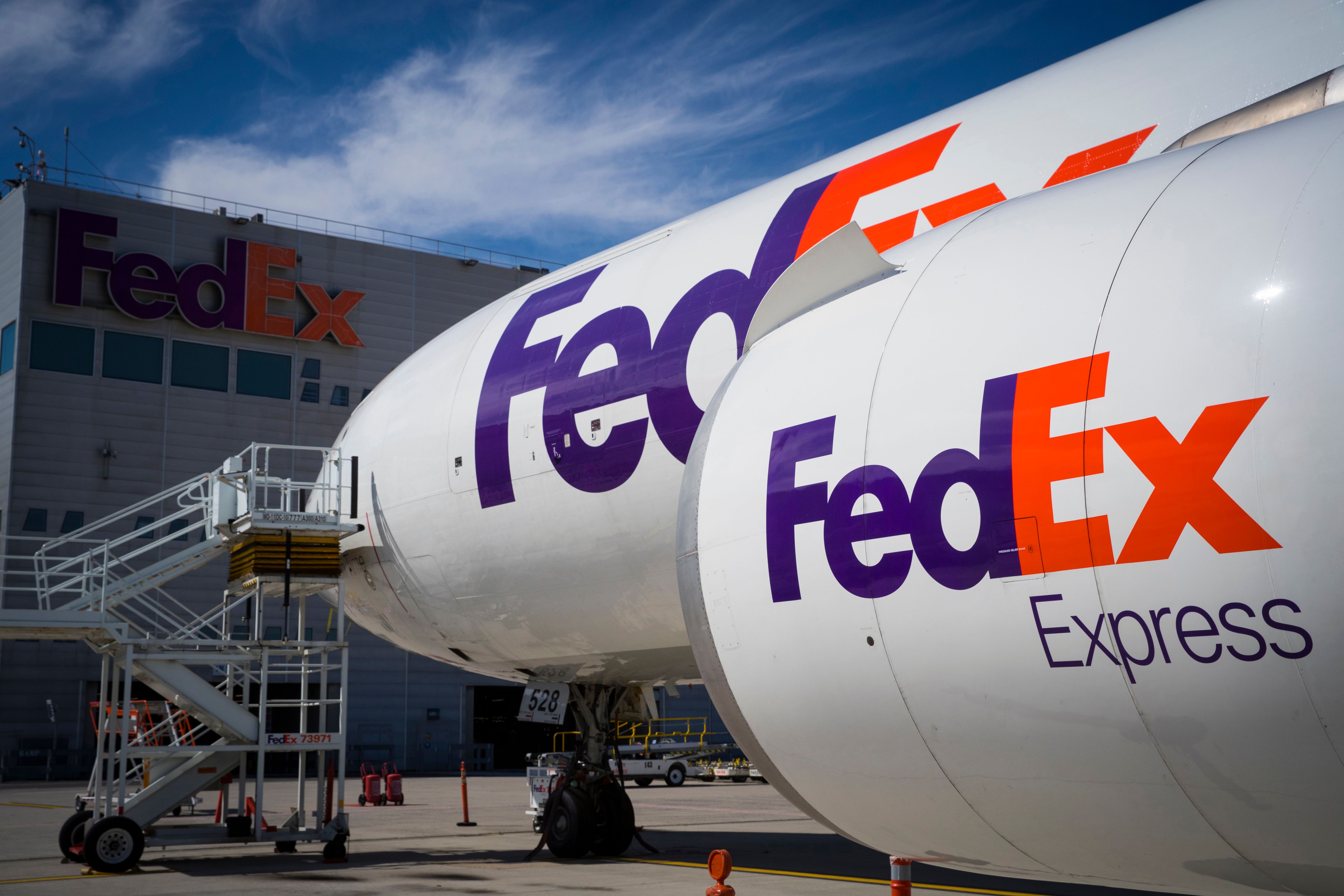
FedEx, a global giant in the logistics industry, has a significant presence in India, offering a wide array of logistics and courier services. FedEx India operates as a subsidiary of FedEx Corporation, and it is dedicated to connecting the Indian market with the world.
Here’s a brief overview of FedEx India’s supply chain and logistics operations:
Services: FedEx India offers a comprehensive suite of services, including domestic and international shipping, express delivery, freight forwarding, third-party logistics (3PL), and supply chain management solutions. It also provides industry-specific solutions, such as healthcare, e-commerce, and more.
Network: FedEx has an expansive network that covers numerous cities and locations across India. Its global network extends to more than 220 countries and territories, providing a strong connection between Indian businesses and customers worldwide.
Infrastructure: FedEx India has a robust infrastructure in place, including several operating facilities, sorting centers, and a substantial fleet of delivery vehicles. It leverages FedEx’s global air and ground network to transport goods efficiently and quickly.
Technology: FedEx India uses advanced technology to streamline its operations and enhance customer experience. For instance, it offers real-time tracking, advanced warehouse management systems, and digital platforms for shipment booking and management. The company also uses data analytics and machine learning to optimize routes and inventory management.
Sustainability: FedEx is committed to corporate responsibility and sustainability. The company has implemented numerous initiatives to reduce its carbon footprint, improve energy efficiency, and promote recycling. It aims to achieve carbon-neutral operations globally by 2040.
Customer Service: FedEx India is known for its customer-centric approach. It offers multiple channels for customer support and provides a range of online tools to help customers manage their shipments efficiently.
FedEx India’s extensive network, wide range of services, and customer-centric approach make it a preferred logistics partner for many businesses across various sectors in India. It plays a crucial role in connecting Indian businesses with the global market, enabling trade and commerce growth.
Safexpress Pvt Ltd
Safexpress Pvt Ltd is one of India’s leading supply chain and logistics companies. Established in 1997, the company has been at the forefront of the logistics industry in India, offering a wide range of services to a diverse set of industries.
Here’s an overview of Safexpress’s supply chain and logistics operations:
Services: Safexpress provides a comprehensive range of services, including express distribution, third-party logistics (3PL), supply chain consulting, and warehousing solutions. They also offer specialized logistics solutions for different sectors, such as e-commerce, fashion, automotive, healthcare, and more.
Network: The company has a vast network covering over 620 districts in India. Safexpress operates over 60 logistics parks, more than 100 hubs, and manages an extensive fleet of vehicles to provide time-definite deliveries.
Infrastructure: Safexpress owns the largest fleet of over 7000 GPS-enabled vehicles and has more than 16 million square feet of warehousing space across India. This robust infrastructure enables them to provide efficient and reliable services to their customers.
Technology: Safexpress leverages technology to enhance operational efficiency and customer satisfaction. They use GPS for real-time tracking of shipments, Warehouse Management Systems (WMS) for effective warehouse operations, and advanced data analytics for supply chain optimization.
Sustainability: Safexpress is committed to operating in an environmentally responsible manner. They have implemented various sustainability initiatives, including energy-efficient operations and waste management practices.
Customer Service: The company is known for its customer-centric approach
Gati Ltd

Gati Ltd is one of India’s leading express distribution and supply chain solutions companies. Founded in 1989 and headquartered in Hyderabad, the company has a strong presence across South Asia and is known for pioneering express distribution in India.
Here’s an overview of Gati’s supply chain and logistics operations:
Services: Gati provides a wide range of services, including express distribution, e-commerce solutions, freight forwarding, warehousing, cold chain solutions, and trading services. They offer door-to-door express delivery for both documents and parcels.
Network: Gati has an extensive network in India, covering 99.3% of districts. They have over 650 operating units and a large number of business partners that provide delivery to remote and far-flung areas.
Infrastructure: Gati has a strong infrastructure, which includes a fleet of more than 5000 vehicles and over 3 million square feet of warehousing space. This allows them to handle a large volume of cargo and ensure timely delivery.
Technology: Gati leverages technology to improve its operations and customer service. It offers real-time tracking of shipments and uses data analytics and AI for route optimization, demand forecasting, and inventory management.
Sustainability: Gati is committed to social responsibility and sustainability. It has initiatives in place to reduce its environmental impact, such as using renewable energy in its facilities and promoting eco-friendly practices.
Customer Service: Gati places a strong emphasis on customer service. They offer 24/7 customer support and have implemented a customer feedback system to continually improve their services.
In summary, Gati plays a crucial role in India’s logistics sector, providing critical services that support various industries, including e-commerce, pharmaceuticals, automotive, electronics, and more.
Allcargo Logistics Ltd
Allcargo Logistics Ltd is one of the leading integrated logistics solutions providers in India. Established in 1993 and headquartered in Mumbai, Allcargo has a global footprint spanning over 180 countries.
Here’s an overview of Allcargo Logistics Ltd’s supply chain and logistics operations:
Services: Allcargo provides a comprehensive range of services, including Multimodal Transport Operations (MTO), Container Freight Station Operations (CFS), Project & Engineering Solutions (PES), and Contract Logistics. This includes freight forwarding (sea and air), warehousing, supply chain solutions, project logistics, and inland container depots.
Divisions: Allcargo operates through various divisions, such as Allcargo Shipping, Allcargo Express, and Allcargo Global Logistics, to cater to diverse logistics needs.
Network: Allcargo has an extensive network in India and around the world. With a presence in over 180 countries, it has a vast reach and offers global logistics solutions.
Infrastructure: Allcargo has robust infrastructure, including a large fleet of vehicles, equipment, and state-of-the-art warehouses. The company owns and operates several container freight stations and inland container depots.
Technology: Allcargo uses advanced technology to improve its operational efficiency. This includes IT systems for real-time tracking, warehouse management systems, and advanced data analytics for supply chain optimization.
Sustainability: Allcargo is committed to sustainability and has implemented practices to reduce its carbon footprint, improve energy efficiency, and manage waste effectively.
Customer Service: Allcargo is known for its customer-centric approach. They focus on providing personalized services and ensure timely and safe delivery of goods.
Allcargo’s comprehensive range of services, global network, and customer-centric approach make it a preferred logistics partner for many businesses. The company plays a significant role in various sectors, including pharmaceuticals, retail, automotive, manufacturing, and more.
Agarwal Packers and Movers Ltd
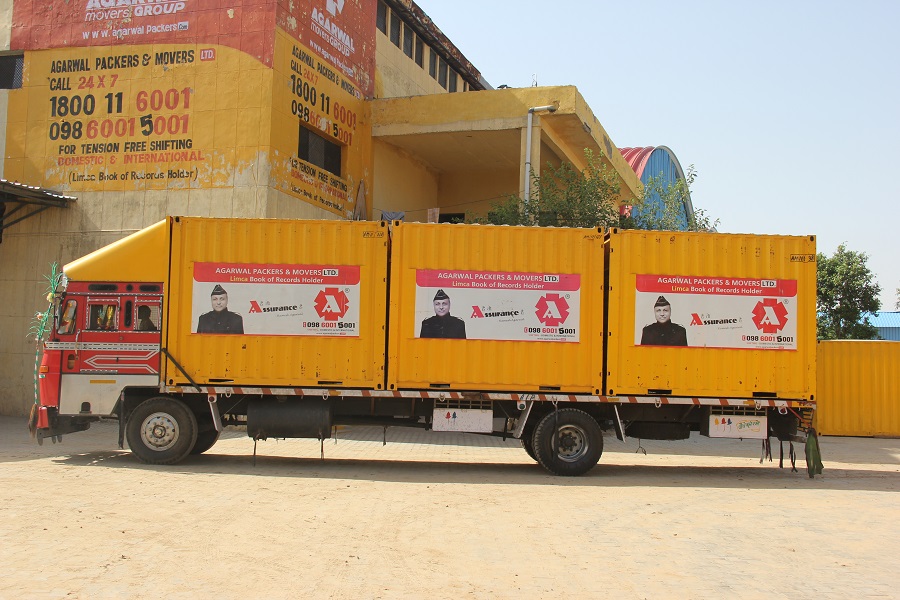
Agarwal Packers and Movers Ltd is one of India’s leading relocation and shifting services providers. Established in 1987 and based in Delhi, the company has gained a reputation for its high-quality moving and packing services.
Here’s an overview of Agarwal Packers and Movers Ltd’s supply chain and logistics operations:
Services: The company offers a wide range of services, including household shifting, corporate shifting, international shifting, car transportation, warehousing, and home storage. They also provide services such as supply chain management, freight station, third-party logistics, and transportation logistics solutions.
Network: Agarwal Packers and Movers Ltd has an extensive network that covers more than 1,260 locations across India and provides international moving services to numerous countries around the world.
Infrastructure: The company owns a fleet of over 1000 vehicles, a team of trained professionals, and a large number of specially-designed carriers and trucks. This robust infrastructure allows the company to handle a large volume of relocation services and ensure safe and timely delivery.
Technology: The company uses advanced technology to enhance its services. This includes a real-time tracking system that allows customers to track their shipments and a centralized computer system to manage operations and communication effectively.
Quality Assurance: Agarwal Packers and Movers Ltd is known for its commitment to quality. The company adheres to stringent quality standards and procedures to ensure the safety and security of goods during transportation. They have specially designed carriers and fabric sheets for safe transportation.
Customer Service: The company places a strong emphasis on customer service and satisfaction. They offer 24/7 customer support and have a dedicated customer care team to handle queries and complaints.
Agarwal Packers and Movers Ltd plays a crucial role in the logistics sector in India, providing essential services that support individuals and businesses in their relocation needs. The company’s commitment to quality and customer satisfaction has made it a preferred choice for many customers across the country and globally.
Future Supply Chain Solutions Ltd
As of my knowledge cutoff in September 2021, Future Supply Chain Solutions Ltd. (FSC) is an India-based integrated logistics service provider. It is a part of the Future Group, which is a major player in India’s retail and fashion sectors.
FSC offers intelligent supply chain solutions and services across various sectors. Its services include:
Warehousing: Providing a secure place to store goods until they are needed. This includes warehouse design, operations, management, and more.
Distribution: Managing the flow of goods from producers to end-users. This includes transportation, inventory management, order fulfillment, and more.
Express Logistics: Offering point-to-point, less-than-truck-load (LTL) service with a focus on timely and safe delivery.
Cold Chain: Providing cold storage and transportation for perishable items such as food and pharmaceuticals.
E-commerce logistics: Handling the unique demands of e-commerce businesses, including storage, packaging, and rapid delivery to customers.
The company leverages technologies such as AI, machine learning, and data analytics to optimize its supply chain operations and provide better service to its clients.
As for any recent updates or changes after 2021, you would have to look up the most recent information, as I cannot provide updates beyond that period.
Mahindra Logistics Ltd
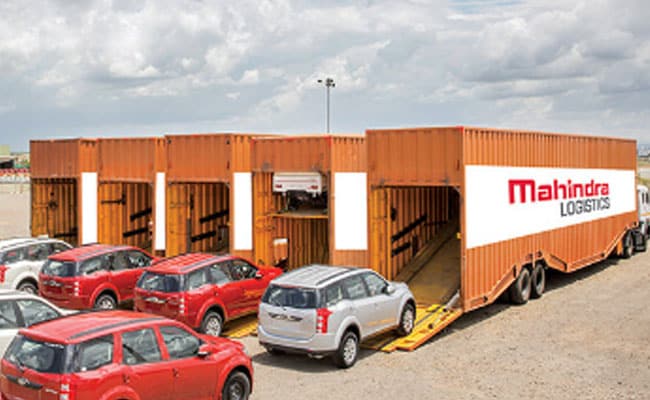
As of my last update in September 2021, Mahindra Logistics Limited (MLL) is one of India’s leading third-party logistics (3PL) solutions providers, which is a part of the Mahindra Group, a large Indian multinational conglomerate.
MLL offers a comprehensive suite of logistics solutions and services, including transportation and distribution, warehousing, in-factory logistics, and value-added services. These services are offered across multiple sectors, spanning automobile, engineering, consumer goods, pharmaceuticals, e-commerce, and telecommunication.
Here’s a brief overview of their main services:
Supply Chain Management: MLL provides customized supply chain solutions to customers, enabling them to focus on their core competencies.
Warehousing: MLL offers warehousing services across India, providing storage, order management, order processing, and order fulfillment.
Transportation: MLL provides end-to-end transport solutions, including primary and secondary distribution.
Value-Added Services: These include services such as packing, labeling, barcoding, kitting, and more.
People Transport Solutions: MLL provides customized people movement solutions, covering route designing and optimization, fleet management, and transport analytics.
International Freight: MLL also facilitates international trade through freight forwarding services, which includes both air and ocean freight.
One of the key characteristics of Mahindra Logistics is its asset-light business model, wherein the company does not own most of the assets (like vehicles, warehouses, etc.). Instead, they focus on providing services by leveraging a wide network of partners. This allows the company to have a greater degree of flexibility in scaling operations according to the client’s needs.
As always, for the most recent updates or changes to the company after 2021, you would need to refer to the latest available information.

